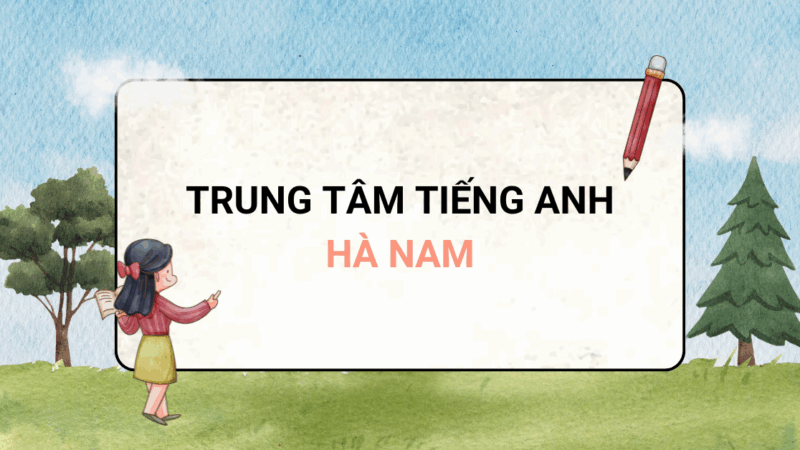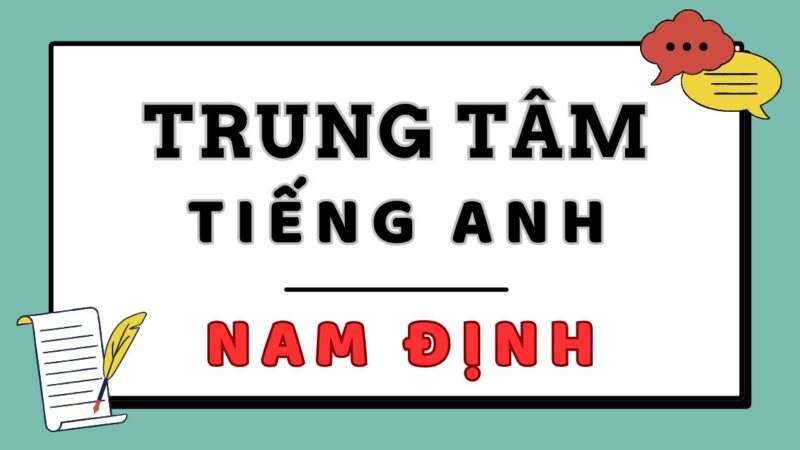100 Bài tập về tính từ trong tiếng Anh (CÓ ĐÁP ÁN)

Chủ đề từ loại đặc biệt là tính từ thuộc phần kiến thức thường xuyên xuất hiện trong các bài thi đánh giá năng lực. Thế nhưng, không phải ai cũng dễ dàng ghi nhớ các loại tính từ này. Bài tập về tính từ trong Tiếng Anh dưới đây của Nguyễn Tất Thành sẽ giúp bạn trau dồi kiến thức và ôn luyện các dạng bài từ cơ bản cho đến nâng cao.
- Giúp bé học dãy số la mã 1 đến 20 cực đơn giản với quy tắc dễ hiểu
- Top những lời chúc mừng sinh nhật tiếng Anh hay nhất năm 2024
- Top 5 cách để trẻ học tiếng Anh qua hình ảnh hiệu quả nhất
- Từ ghép tiếng Việt lớp 1 và những bí quyết giúp bé học đúng mà bố mẹ nên biết
- Phương pháp học Toán Finger Math và 4 quy tắc quan trọng mà ba mẹ cần nhớ!
Tóm tắt ngữ pháp về tính từ trong Tiếng Anh
Trước khi thực hành bài tập về tính từ trong tiếng Anh, bạn cần nắm được lý thuyết tổng quan về loại từ này, bao gồm: Định nghĩa, phân loại, vị trí và dấu hiệu nhận biết.
Bạn đang xem: 100 Bài tập về tính từ trong tiếng Anh (CÓ ĐÁP ÁN)
Định nghĩa tính từ trong tiếng Anh
Tính từ là loại từ sử dụng để miêu tả các đặc tính, tính chất của một sự vật hoặc trạng thái của người & vật. Chúng đóng vai trò làm rõ nghĩa cho danh từ và đại từ trong câu nên được ứng dụng nhiều trong tiếng Anh.
Các loại tính từ tiếng Anh
Tính từ nằm trong chương trình học tiếng Anh lớp 6, vì vậy các bạn nhỏ cần nắm được để làm tốt bài tập về tính từ trong tiếng anh. Trong phần đầu tiên, Nguyễn Tất Thành sẽ giúp bạn nhận biết các loại tính từ trong bảng tóm tắt sau đây:
|
STT
|
Loại tính từ
|
Diễn giải
|
|
1
|
Tính từ riêng
(Proper)
|
Là những từ biến đổi danh từ, đại từ và tính từ riêng được hình thành từ danh từ riêng.
|
|
2
|
Tính từ mô tả
(Descriptive)
|
Được dùng để mô tả các đặc tính khác nhau của danh từ hoặc đại từ đang được sửa đổi.
|
|
3
|
Tính từ định lượng
(Quantifiers)
|
Nhằm nói về số lượng/ khối lượng của một đối tượng nào đó, nó thường trả lời cho dạng câu hỏi “how many” hoặc “how much”.
|
|
4
|
Tính từ số
(Numeral)
|
Là những từ dùng để mô tả số lượng danh từ hoặc thứ tự của danh từ được mô tả, tính từ dạng số cho biết danh từ có số lượng nhiều hay ít hoặc theo thứ tự nào. Có 3 loại tính từ số:
+ Tính từ số xác định (chỉ số từ, số thứ tự cụ thể)
+ Tính từ số không xác định (mang tính ước lượng, chung chung)
+ Tính từ số phân bổ (chỉ một nhóm đối tượng nào đó)
|
|
5
|
Tính từ chỉ thị
(Demonstratives)
|
Được sử dụng để miêu tả đại từ hay danh từ mà chủ thể muốn đề cập, bao gồm cả các từ: these, those, this, that.
|
|
6
|
Tính từ phân tán
(Distributive)
|
Được dùng để diễn tả, nói về các thành viên của nhóm với tư cách là các cá nhân. Một vài tính từ phân phối mà bạn thường gặp: any, either, every hoặc each. Tính từ này sẽ luôn đi cùng với 1 danh từ hay đại từ.
|
|
7
|
Tính từ nghi vấn
(Interrogative)
|
Là những từ được sử dụng để sửa đổi danh từ bằng cách đặt câu hỏi.
|
|
8
|
Tính từ sở hữu
(Possessives)
|
Là những từ đứng trước danh từ để thể hiện quyền sở hữu.
|
|
9
|
Phối hợp tính từ
(Coordinate)
|
Là sự kết hợp các tính từ để sử đổi cùng một danh từ, đôi khi chúng được ngăn tách bằng dấu phẩy.
|
|
10
|
Tính từ vị ngữ
(Predicate)
|
Các tính từ xuất hiện sau động từ liên kết và thay đổi chủ đề của câu được gọi là tính từ vị ngữ.
|
|
11
|
Mạo từ
(Articles)
|
Các mạo từ a, an, the được coi là lớp tính từ đặc biệt, chúng thường đứng trước danh từ.
|
|
12
|
Tính từ liên hệ
(Contact)
|
Tính từ liên hệ sẽ khác với các dạng tính từ trong tiếng Anh ở bên trên, đây là những từ có hình thức như đại từ liên hệ trong câu, được sử dụng ở dạng whichever, whatever,…
|
|
13
|
Tính từ theo vị trí
(Position)
|
Tính từ thường đứng trước danh từ: có thể đứng một mình, không cần đi kèm với danh từ.
Tính từ không cần đi kèm với danh từ: thường bắt đầu bằng “a”: aware, afraid, alive, awake, alone, ashamed… và một số tính từ khác như: unable, exempt, content…
|
Vị trí của tính từ
Trong ngữ pháp Tiếng Anh, vị trí của tính từ vô cùng đa dạng.
1. Tính từ đứng trước danh từ:
S + adjective + N
Ex: Chocolate is a yummy snack. (Sô cô la là một món ăn nhẹ ngon.)
2. Tính từ đứng sau động từ liên kết:
S + to be/seem/sound/appear/feel/taste/look/keep/get + adjective
Ex: She seems happy. (Cô ấy có vẻ hạnh phúc.)
3. Tính từ đứng sau tân ngữ:
keep, make, find… + it + adjective
Ex: They find the test difficult. (Họ thấy bài kiểm tra khó.)
4. Tính từ đứng sau “too”:
S + to be/seem/ look. . . . + too + adjective + to + V
Ex: This table is too small for us to use. (Bàn này quá nhỏ để chúng tôi sử dụng.)
5. Tính từ đứng trước “enough”:
S + to be + adj + enough + to V
Ex: The steak is good enough to be served. (Món bít tết đủ ngon để được phục vụ.)
6. Tính từ trong cấu trúc “so…that”:
S1 + to be/seem/sound/look/feel. . . + so + adj + that + S2 + V
Ex: The camera is so expensive that he has to return it. (Chiếc máy ảnh đắt đến mức anh ta phải trả lại.)
7. Tính từ dùng dưới dạng so sánh:
- more + adj + than
- adj-er + than
- the most + adj
- the least + adj
- less + adj + than
- (not) as + adj + as
Ex: They have a house bigger than yours. (Họ có một ngôi nhà lớn hơn của bạn.)
8. Tính từ dùng trong câu cảm thán:
- How + adj + S + V!
- What + (a/an) + adj + N!
Ex: How hot the weather is! (Thời tiết nóng nực làm sao!)
9. Tính từ dùng trong câu đo lường:
S + to be + + đơn vị + adjective
Ex: This table is two meters long. (Bàn này dài hai mét.)
10. Tính từ dùng để bổ nghĩa cho các đại từ bất định:
S + V + N + adjective
Ex: I have something important to tell you. (Tôi có chuyện quan trọng muốn nói với bạn.)
Dấu hiệu nhận biết

Vậy có cách nào để ta có thể nhận biết các tính từ trong câu? Những dấu hiệu đặc trưng dựa vào vị trí của các loại từ trong câu sẽ giúp bạn nhận ra chúng. Cùng tìm hiểu ngay!
1. Vị trí trước danh từ
Ex: She is a famous business woman. (Cô ấy là một nữ doanh nhân nổi tiếng.)
2. Vị trí sau TO BE
Ex: She is smart. (Cô gái ấy thông minh.)
3. Vị trí sau động từ chỉ cảm xúc
Những động từ chỉ cảm xúc mà chúng ta thường gặp như: feel, look, sound, become, get, smell , turn, seem, hear
Ex: As the movie went on, it became more and more exciting. (Phim càng về sau càng hấp dẫn.)
4. Vị trí sau những đại từ bất định
Các đại từ bất định thường gặp đó là: something, someone, anything, anyone, everyone, everybody, everything, nobody, nothing.
Ex: I’ll tell you something interesting. (Tôi sẽ kể cho bạn nghe một điều thú vị.)
5. Các từ tận cùng bằng những âm tiết sau chắc chắn là tính từ
|
Âm tiết
|
Ví dụ
|
|
-ful
|
beautiful, peaceful,…
|
|
-ive
|
competitive, expensive,…
|
|
-able
|
foundable, countable, comfortable,…
|
|
-ous
|
dangerous, famous,…
|
|
-cult
|
difficult,…
|
|
-ish
|
selfish, childish,…
|
|
-ed
|
bored, excited,…
|
|
-y
|
daily, monthly, friendly, healthy, lovely,…
|
|
-al
|
additional, natural,…
|
Xem chi tiết: [A-Z] Tính từ trong tiếng anh: Phân loại, vị trí, cách nhận biết đầy đủ nhất
10 dạng bài tập về tính từ trong Tiếng Anh

Có 10 dạng bài tập về tính từ mà chúng ta rất dễ bắt gặp trong các bài kiểm tra:
Dạng 1: Cho dạng đúng của các từ trong ngoặc để tạo thành câu có nghĩa.
Dạng 2: Khoanh tròn vào đáp án đúng nhất.
Dạng 3: Chọn đáp án đúng nhất để hoành thành đoạn văn.
Dạng 4: Điền dạng đúng của những từ trong ngoặc.
Dạng 5: Tìm và sửa những lỗi sai trong các câu sau.
Dạng 6: Sắp xếp các tính từ sau theo đúng trật tự mô tả trong câu.
Dạng 7: Viết lại câu sao cho nghĩa không đổi.
Dạng 8: Sắp xếp các câu sau thành câu hoàn chỉnh.
Dạng 9: Chọn từ chính xác để điền vào câu.
Dạng 10: Điền tính từ trái nghĩa với các từ cho trước.
Tính từ là kiến thức quan trọng các con cần nắm được khi học ngữ pháp Tiếng Anh, vì vậy ba mẹ hãy cho con ôn tập thường xuyên. Ngoài ra, bạn có thể cho bé học thêm ngữ pháp và từ vựng được tổng hợp tại Nguyễn Tất Thành Stories để con tiến bộ nhanh, thành thạo 4 kỹ năng trước 10 tuổi nhé!
Tổng hợp 100+ câu bài tập về tính từ trong Tiếng Anh
Cùng Nguyễn Tất Thành thực hành với một số bài tập đơn giản dưới đây. Sau khi thành thạo, bạn có thể thử level khó hơn.
Bài tập tính từ tiếng Anh cơ bản
Bài tập 1: Cho dạng đúng của các từ trong ngoặc để tạo thành câu có nghĩa.
1. I hate being around Mary Lou, she is __________________. (friendly)
2. The stock market crash of 1929 left my great grandfather___________________. (penny)
3. I have a class at 8:00 a.m. but I am always________________. (sleep)
4. I think we should try something else. That strategy seems way too________________. (risk)
5. When you work at a nuclear power plant, you have to be extremely _________________. (care)
6. I had to take three months off when I was pregnant, but my boss has been very ____________. (understand)
Bài tập 2: Khoanh tròn vào đáp án đúng nhất.
1. It isn’t quite_________that he will be present at the meeting.
A. right
B. exact
C. certain
D. formal
2. As there was a _____________ cut in the hospital, the surgeon had to call off the operation.
A.power
B. powering
C. powder
D. powerful
3. Could you please_________an appointment for me to see Mr. Smith?
A. manage
B. arrange
C. take
D. have
4. The police_________her for helping the murderer to escape.
A. caught
B. searched
C. brought
D. arrested
5. When John_________in London, he went to see the Houses of Parliament.
A. came
B. reached
C. arrived
D. got
6. I read an interesting _________in a newspaper about farming today.
A. article
B. advertisement
C. composition
D. explanation
7. Students are expected to _________their classes regularly.
A. assist
B. frequent
C. attend
D. present
8. Before you sign anything important, pay careful _________to all the conditions.
A.notice
B. attention
C. regards
D. reference
9. In the central region the dry season is long and severe, and the _________annual rainfall is only about 70 cm.
A. refreshing
B. general
C. average
D. greatest
10. As soon as the children were_________, their mother got them out of bed and into the bathroom.
A. woke
B. wake
C. awake
D. waken
Bài tập 3: Chọn đáp án đúng nhất để hoành thành đoạn văn.
[…] Chimpanzees in the wild like to snack on termites, and youngsters learn to fish for them by picking long sticks and other (1)____tools into the mounds that large groups of termites build. Researchers found that (2)______average female chimps in the Gombe National Park in Tanzania learned how to do termite fishing at the age of 31 months, more than two years earlier than the males.
The females seem to learn by watching their mothers. Researcher Dr. Elisabeth V. Lonsdorf, director of field conservation at the Lincoln Park Zoo in Chicago, said that it is (3)_____to find that when a young male and female are near a mound, ‘she’s really focusing on termite fishing and he’s spinning himself round (4)_______circles’. Dr. Landsdorf and colleagues are studying chimpanzees at the zoo with a new, specially created termite mound, filled with mustard (5)________than termites. […]
Question 1: A. relative B. similar C. close D. connected
Question 2: A. at B. by C. on D. for
Question 3: A. typical B. regular C. ordinary D. frequent
Question 4: A. in B. with C. to D. through
Question 5: A. other B. else C. instead D. rather
Bài tập 4: Điền dạng đúng của những từ trong ngoặc.
Well, I would like to talk about the final football match between U23 Vietnam and U23 Uzbekistan in Asian Football Championship in January 2018.
You know, it is still spectacular and (1-impress)_______ although our team didn’t win the cup for the following two reasons. Firstly because the team contributed a (2-note)________ performance in the decisive match under extreme (3-freeze)_________ weather. After (4-miracle)__________ victories over Iraq and Qatar, our team was expected to create another miracle and be the champion. The team played with all the strength and determination they had despite the harsh weather conditions.
Xem thêm : 100+ câu bài tập quá khứ hoàn thành tiếp diễn trắc nghiệm & tự luận (Full Level)
Secondly, our team is the representative of patriotism and pride of (5-nation)__________ identity. As you know, thanks to excellent team spirit, the intense snow couldn’t prevent our boys from moving forward and fighting courageously. They tried their best to bring the (6-prestige)__________ trophy to our country. Vietnamese people as well as other countries’ residents really appreciated their constant effort throughout the tournament. Although we lost 1-2 to team Uzbekistan at the last minute and couldn’t claim the championship, we still felt so (7-pride)___________ of our “heroes” and now they are the new-generation idols of our country.
Bài tập 5: Tìm và sửa những lỗi sai trong các câu sau.
1. Average family size has increased from the Victorian era.
2. The riches in Vietnam are becoming richer and richer.
3. In 1892, the first long-distance telephone line between Chicago and New York was formally opening.
4. Dietitians urge people to eat a banana a day to get potassium enough in their diet.
5. Woody Guthrie has written thousands of songs during her lifetime, many of which became classic folk songs.
6. The development of transistors madepossible it to reduce the size of many electronic devices.
7. My father is a good family man, completely devoted for his wife and kids.
8. The price of gold depends on several factor, including supply and demand in relation to the value of the dollar.
9. Weather and geographical conditions may determine the type of transportation used in a region.
10. Those people were so friend that I didn’t want to say goodbye to them.
Bài tập 6: Sắp xếp các tính từ sau theo đúng trật tự mô tả trong câu.
1. a long face (thin)
2. big clouds (black)
3. a sunny day (lovely)
4. a wide avenue (long)
5. a metal box (black/ small)
6. a big cat (fat/ black)
7. a / an little village (old/ lovely)
8. long hair (black/ beautiful)
9. an / a old painting (interesting/ French)
10. an / a enormous umbrella (red/ yellow)
Tham khảo thêm: [ADJ Phrase] 150+ Cụm tính từ trong tiếng anh thông dụng nhất
Bài tập 7: Viết lại câu sao cho nghĩa không đổi.
1. The food had a strange taste. (tasted)
2. His cat slept. (asleep)
3. The young man was polite. (spoke)
4. This bus was late. (arrived)
5. There was almost no time left. (any)
Bài tập 8: Sắp xếp các câu sau thành câu hoàn chỉnh.
1. hair/long/a/black.
2. a/yellow/small/house/ancient.
3. lovely/day/a/rainy.
4. an/book/interesting/old.
5. a/house/beautiful/modern.
Bài tập 9: Chọn từ chính xác để điền vào câu.
1. They dance the Tango (beautiful / beautifully)
2. She planned their trip to Greece very (careful / carefully)
3. Jim painted the kitchen very (bad / badly)
4. She speaks very (quiet / quietly)
5. Turn the stereo down. It’s too (loud / loudly)
6. He skipped________ down the road to school. (Happy / happily)
7. He drives too (fast / well)
8. She knows the road (good/well)
9. He plays the guitar (terrible / terribly)
10. We’re going camping tomorrow so we have to get up (early /soon)
11. Andy doesn’t often work (hard / hardly)
12. Sometimes our teacher arrives______for class. (Late / lately)
Bài tập 10 : Điền tính từ trái nghĩa với các từ cho trước.
|
Tính từ
|
Tính từ trái nghĩa
|
Tính từ
|
Tính từ trái nghĩa
|
|
Old
|
Intelligent
|
||
|
Fun
|
Strong
|
||
|
Cold
|
Suspicious
|
||
|
Soft
|
Lucky
|
||
|
Long
|
Popular
|
||
|
Heavy
|
Dangerous
|
||
|
Clean
|
Tiny
|
||
|
Ugly
|
Brave
|
||
|
Cheap
|
Ancient
|
||
|
Tame
|
Thin
|
Bài tập 11: Điền dạng đúng của những từ trong ngoặc.
1. He _______________ reads a book. (quick)
2. Mandy is a _______________ girl. (pretty)
3. The class is _______________ loud today. (terrible)
4. Max is a _______________ singer. (good)
5. You can _______________ open this tin. (easy)
6. It’s a _______________ day today. (terrible)
7. She sings the song _______________. (good)
8. He is a _______________ driver. (careful)
9. He drives the car _______________. (careful)
10. The dog barks _______________. (loud)
Bài tập về tính từ trong tiếng anh nâng cao
Sau khi hoàn thành bài tập tính từ tiếng Anh cơ bản, bạn hãy thử sức với những dạng bài tập nâng cao có đáp án kèm theo sau đây:
Bài tập 12: Chọn từ chính xác để điền vào câu.
|
bad, big, cold, difficult, down, easy, fast, high, left, loud, new, old, on, open, quiet, short, slow, tall, unhappy, wrong
|
1. This math problem is so ____________. I can’t do it.
2. The test was very ____________, everybody got 100%.
3. If you don’t study for your test, you’ll get a ____________ grade.
4. My friend is so ____________. She never says a word!
5. “Why do you look so ____________?” – “I got an F on my math test!”
6. I need a ____________ calculator. This one’s broken!
7. The test was very difficult. I got all the answers ____________.
8. To get to the auditorium from here, you must go ____________ stairs.
9. The noise was very ____________ when the plane flew over the school.
10. I can’t see anything – please turn the light ____________.
11. If you leave your locker ____________, someone may take your things.
12. You’re only 15; that’s not ____________ enough to drive.
13. Please shut the window; it’s ____________ in here!
14. We have a very ____________ house with more than 10 rooms.
15. I’m good at the long jump, but not at the ____________ jump.
16. My pencil’s so ____________ that it’s difficult to hold it
17. He’s so ____________, he comes last in every race.
18. He works very ____________. He is always the first to finish.
19. My father’s so ____________ he can almost touch the ceiling.
20. Turn ____________ to go from room 262 to room 263.
Bài tập 13: Khoanh tròn vào đáp án đúng nhất.
1. In many countries, it is _____ legal to keep a gun in your house.
a. un
b. il
c. in
2. She’s thinking of going back to university and taking a ____ graduate course.
a. pre
b. under
c. post
3. Thousands of people have taken part in a ______-democracy demonstration.
a. pro
b. anti
c. for
4. You shouldn’t eat chicken that is ______ cooked.
a. anti
b. mis
c. under
5. There was some _________ agreement over the bill.
a. dis
b. mis
c. un
6. She works for a _________ national company. It has offices in over 30 countries.
a. inter
b. multi
c. bi
7. Everyone was watching me and I felt very ________ – conscious.
a. un
b. over
c. self
8. His _________ -wife is suing him for $5 million.
a. pre
b. ex
c. post
9. We were very ________ satisfied with the service at the restaurant.
a. un
b. mis
c. dis
10. The quality of the work was very poor and much of it had to be ______ done
a. pre
b. un
c. re
11. She has little aware _________ of the dangers she will face.
a. ment
b. ness
c. ing
12. He couldn’t hide he disappoint ________ at his low grade.
a. ness
b. ment
c. y
13. The twins got on very well together and there was no jealous ________ between them.
a. y
b. ity
c. ism
14. I was shocked at her rude ______.
a. ness
b. ment
c. ence
15. She’s training to become a psycholog _____.
a. er
b. y
c. ist
16. Exercise is good for your health ______
a. y
b. ance
c. (no suffix)
17. Many people don’t trust politics _____ because they tell lies.
a. ists
b. ians
c. ers
18. Art classes aim to develop children’s creativ ______.
a. ment
b. ship
c. ity
19. She can’t accept critic _________ from her colleagues.
a. al
b. ism
c. ing
20. Manchester United support _______ were delighted with their team’s 3 – 0 win at the weekend.
a. ists
b. ees
c. ers
Bài tập 14: Điền từ thích hợp vào chỗ trống
1. My brother got married ______________ my best friend.
2. Kate is recently busy ______________ her new project.
3. Charlotte is known ______________ her fantastic voice.
4. Peter was so kind ______________ me.
5. We don’t want to be involved ______________ this conversation.
6. They are nervous ______________ taking part in the competition.
7. They are so grateful ______________ all you’ve done.
8. We are not keen ______________ watching horror movies.
9. Are you satisfied ______________ your current salary?
10. Oh no, I’m getting late ______________ my class.
11. Andrew has always been jealous ______________ his brother’s success.
12. Everybody is fed up ______________ your rudeness.
13. These children are talented ______________ playing the violin.
14. I feel sorry ______________ yelling at you.
15. I’m worried ______________ the situation.
Bài tập 15: Điền từ thích hợp vào chỗ trống
1. Jake’s room is ______________ than Larry’s room. (small)
2. The blue car is ______________ than the black car. (nice)
3. This exercise is ______________ than that one. (boring)
4. His pullover is ______________ than his jeans. (dark)
5. Susan’s hair is ______________ than my hair. (long)
6. George is ______________ than Robert. (funny)
7. My result in the test was ______________ than Harry’s. (good)
8. Gold is ______________ than silver. (expensive)
9. Christine is ______________ than Alice. (smart)
10. Football is ______________ than handball. (popular)
Bài tập 16: Điền từ thích hợp vào chỗ trống
1. This is a nice cat. It’s much __________ than my friend’s cat.
2. Here is Emily. She’s six years old. Her brother is nine, so he is __________ .
3. This is a difficult exercise. But the exercise with an asterisk (*) is the __________ exercise on the worksheet.
4. He has an interesting hobby, but my sister has the __________ one in the world.
5. In the last holidays I read a good book, but my father gave me an even __________ one last weekend.
6. School is boring, but homework is __________ than school.
7. Skateboarding is a dangerous hobby. Bungee jumping is __________ than skateboarding.
8. This magazine is cheap, but that one is __________ .
9. We live in a small house, but my grandparents’ house is even __________ than ours.
10. Yesterday John told me a funny joke. This joke was the __________ joke I’ve ever heard.
Đáp án bài tập về tính từ trong tiếng anh
Đáp án bài cơ bản
Bài tập 1:
1. unfriendly
2. penniless
3. sleepy
4. risky
5. careful
6. understanding
Bài tập 2:
|
1. C
|
2. A
|
3. B
|
4. D
|
5. C
|
6. A
|
7. C
|
8. B
|
9. C
|
10. C
|
Bài tập 3:
Bài tập 4:
1. impressive
2. notable
3. freezing
4. miraculous
5. national
6. prestigious
7. proud
Bài tập 5:
1. from => since
2. The riches => The rich
3. Opening => opened
4. Potassium enough=> enough potassium
5. Became => have become/ become
6. madepossible it=> made it possible
7. for => to
8. Factor => factors
9. geography=> geographical
10. Friend => friendly
Bài tập 6:
1. a long thin face
2. big black clouds
3. a lovely sunny day
4. a long wide avenue
5. a small black metal box
6. a big fat black cat
7. a lovely little old village
8. beautiful long black hair
9. an interesting old French painting
10. an enormous red and yellow umbrella
Bài tập 7:
1. The food tasted strange.
2. His cat was asleep.
3. The young man spoke politely.
4. This bus arrived late.
5. There wasn’t almost any time.
Bài tập 8:
1. a long black hair.
2. a small ancient yellow house.
3. a lovely rainy day.
4. an interesting old book.
5. a beautiful modern house.
Bài tập 9:
1. beautiful
2. careful
3. bad
4. quiet
5. loud
6. happily
7. fast
8. well
9. terrible
10. early
11. hard
12. lately
Bài tập 10:
|
Tính từ
|
Tính từ trái nghĩa
|
Tính từ
|
Tính từ trái nghĩa
|
|
Old
|
Young
|
Intelligent
|
Stupid
|
|
Fun
|
Boring/Bored
|
Strong
|
Weak
|
|
Cold
|
Hot
|
Suspicious
|
Sure
|
|
Soft
|
Hard
|
Lucky
|
Unlucky
|
|
Long
|
Short
|
Popular
|
Rare
|
|
Heavy
|
Light
|
Dangerous
|
Safe
|
|
Clean
|
Dirty
|
Tiny
|
Huge
|
|
Ugly
|
Beautiful
|
Brave
|
Afraid
|
|
Cheap
|
Expensive
|
Ancient
|
Modern
|
|
Tame
|
Wild
|
Thin
|
Thick
|
Bài tập 11:
1. He quickly reads a book.
2. Mandy is a pretty girl.
3. The class is terribly loud today.
4. Max is a good singer.
5. You can easily open this tin.
6. It’s a terrible day today.
7. She sings the song well.
8. He is a careful driver.
9. He drives the car carefully.
10. The dog barks loudly.
Đáp án bài nâng cao
Bài tập 12:
1. This math problem is so difficult. I can’t do it.
2. The test was very easy; everybody got 100%.
3. If you don’t study for your test, you’ll get a bad grade.
4. My friend is so quiet. She never says a word!
5. “Why do you look so unhappy?” – “I got an F on my math test!”
6. I need a new calculator. This one’s broken!
7. The test was very difficult. I got all the answers wrong.
8. To get to the auditorium from here, you must go down stairs.
9. The noise was very loud when the plane flew over the school.
10. I can’t see anything – please turn the light on.
11. If you leave your locker open, someone may take your things.
12. You’re only 15; that’s not old enough to drive.
13. Please shut the window; it’s cold in here!
14. We have a very big house with more than 10 rooms.
15. I’m good at the long jump, but not at the high jump.
16. My pencil’s so short that it’s difficult to hold it
17. He’s so slow; he comes last in every race.
18. He works very fast. He is always the first to finish.
19. My father’s so tall he can almost touch the ceiling.
20. Turn left to go from room 262 to room 263.
Bài tập 13:
|
1. b
|
2. c
|
3. b
|
4. c
|
5. a
|
6. b
|
7. c
|
8. b
|
9. c
|
10. c
|
|
11. b
|
12. b
|
13. a
|
14. a
|
15. c
|
16. c
|
17. b
|
18. c
|
19. b
|
20. c
|
Bài tập 14:
|
1. to
2. with
3. for
4. to
5. in
6. about
7. for
8. on
|
9. with
10. for
11. of
12. with
13. in
14. for
15. about
|
Bài tập 15:
|
1. smaller
2. nicer
3. more boring
4. darker
5. longer
|
6. funnier
7. better
8. more expensive
9. smarter
10. more popular
|
Bài tập 16:
|
1. nicer
2. older
3. most difficult
4. most interesting
5. better
|
6. more boring
7. more dangerous
8. cheaper
9. cheaper
10. funniest
|
Thông qua phần tổng hợp kiến thức và bài tập về tính từ trong Tiếng Anh, các bạn đã hiểu rõ cách dùng cũng như phân biệt được các loại tính từ khác nhau. Hy vọng bài viết mà Nguyễn Tất Thành chia sẻ sẽ giúp việc ôn luyện của các bạn trở nên dễ dàng hơn.
Chúc các bạn học tốt!
BẤM NHẬN CẬP NHẬT để không bỏ lỡ kiến thức bổ ích cho bé trên Blog Học tiếng Anh của Nguyễn Tất Thành. Đặc biệt!! Tặng ngay suất học Nguyễn Tất Thành Class – Lớp học chuyên đề giúp con học tốt, ba mẹ đồng hành hiệu quả.  |
Nguồn: https://truongnguyentatthanh.edu.vn
Danh mục: Giáo dục





